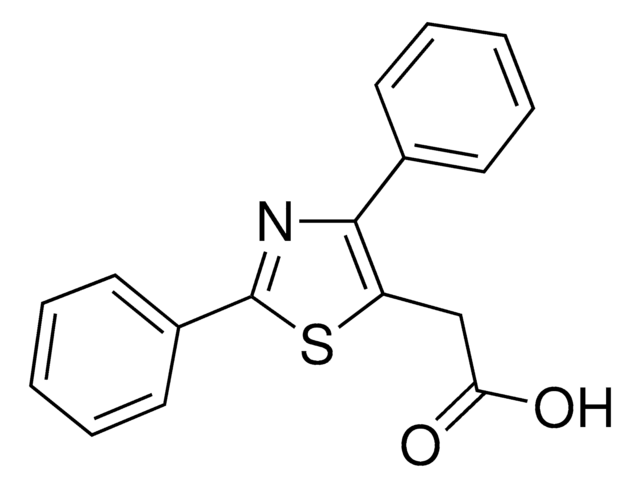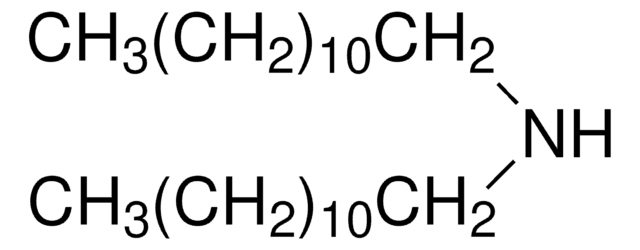757233
2,4-Bis[4-(N,N-diphenylamino)-2,6-dihydroxyphenyl]squaraine
98%
About This Item
Recommended Products
Quality Level
Assay
98%
form
powder
mp
328-333 °C
λmax
720 nm
Orbital energy
HOMO 5.3 eV
LUMO 3.8 eV
OPV Device Performance
ITO/MoO3/DP-SQ/C60/PTCBI/Ag
SMILES string
Oc1cc(cc(O)c1[C]2[C+]([O-])[C]([C+]2[O-])c3c(O)cc(cc3O)N(c4ccccc4)c5ccccc5)N(c6ccccc6)c7ccccc7
InChI
1S/C40H28N2O6/c43-31-21-29(41(25-13-5-1-6-14-25)26-15-7-2-8-16-26)22-32(44)35(31)37-39(47)38(40(37)48)36-33(45)23-30(24-34(36)46)42(27-17-9-3-10-18-27)28-19-11-4-12-20-28/h1-24,43-46H
InChI key
FXAALAVLRJSKEQ-UHFFFAOYSA-N
Related Categories
General description
Application
Signal Word
Warning
Hazard Statements
Precautionary Statements
Hazard Classifications
Eye Irrit. 2 - Skin Irrit. 2 - STOT SE 3
Target Organs
Respiratory system
Storage Class Code
11 - Combustible Solids
WGK
WGK 3
Flash Point(F)
Not applicable
Flash Point(C)
Not applicable
Choose from one of the most recent versions:
Certificates of Analysis (COA)
Don't see the Right Version?
If you require a particular version, you can look up a specific certificate by the Lot or Batch number.
Already Own This Product?
Find documentation for the products that you have recently purchased in the Document Library.
Articles
Solution-processed organic photovoltaic devices (OPVs) have emerged as a promising clean energy generating technology due to their ease of fabrication, potential to enable low-cost manufacturing via printing or coating techniques, and ability to be incorporated onto light weight, flexible substrates.
Solution-processed organic photovoltaic devices (OPVs) have emerged as a promising clean energy generating technology due to their ease of fabrication, potential to enable low-cost manufacturing via printing or coating techniques, and ability to be incorporated onto light weight, flexible substrates.
Solution-processed organic photovoltaic devices (OPVs) have emerged as a promising clean energy generating technology due to their ease of fabrication, potential to enable low-cost manufacturing via printing or coating techniques, and ability to be incorporated onto light weight, flexible substrates.
Solution-processed organic photovoltaic devices (OPVs) have emerged as a promising clean energy generating technology due to their ease of fabrication, potential to enable low-cost manufacturing via printing or coating techniques, and ability to be incorporated onto light weight, flexible substrates.
Our team of scientists has experience in all areas of research including Life Science, Material Science, Chemical Synthesis, Chromatography, Analytical and many others.
Contact Technical Service![1,3-Bis[4-(dimethylamino)phenyl]-2,4-dihydroxycyclobutenediylium dihydroxide, bis(inner salt) Dye content 90 %](/deepweb/assets/sigmaaldrich/product/structures/301/519/500149b3-198c-44cf-b952-7e91f54fc48e/640/500149b3-198c-44cf-b952-7e91f54fc48e.png)









